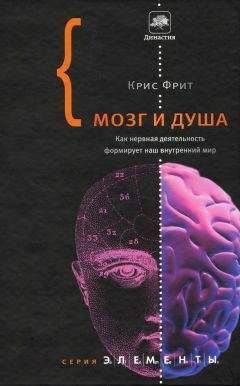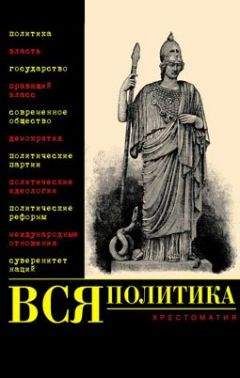happens if the network of understanding among psychopaths
achieves power in leadership positions with international expo-
sure? This can happen, especially during the later phases of the
phenomenon. Goaded by their character, such deviant people
thirst for just that even though it ultimately conflicts with their
own life interest, and so they are removed by the less patho-
logical, more logical wing of the ruling apparatus. Such devi-
ants do not understand that a catastrophe would otherwise en-
sue. Germs are not aware that they will be burned alive or bur-
ied deep in the ground along with the human body whose death
they are causing.
If the many managerial positions are assumed by individu-
als deprived of sufficient abilities to feel and understand the
majority of other people, and who also exhibit deficiencies in
technical imagination and practical skills - (faculties indispen-
sable for governing economic and political matters) - this then
results in an exceptionally serious crisis in all areas, both
within the country in question and with regard to international
relations. Within, the situation becomes unbearable even for
those citizens who were able to feather their nest into a rela-
tively comfortable modus vivendi. Outside, other societies start
to feel the pathological quality of the phenomenon quite dis-
tinctly. Such a state of affairs cannot last long. One must then
be prepared for ever more rapid changes, and also behave with
great circumspection.
Pathocracy is a disease of great social movements followed
by entire societies, nations, and empires. In the course of hu-
man history, it has affected social, political, and religious
movements, as well as the accompanying ideologies, character-
istic for the time and the ethnological conditions, and turned
them into caricatures of themselves. This occurs as a result of
200
PATHOCRACY
the activities of similar etiological factors in this phenomenon,
namely the participation of pathological agents in a pathody-
namically similar process. That explains why all the pathocra-
cies of the world are and have been so similar in their essential
properties. Contemporaneous ones easily find a common lan-
guage, even if the ideologies nourishing them and protecting
their pathological contents from exposure differ widely.
Identifying these phenomena through history and properly
qualifying them according to their true nature and contents, not
according to the ideology in question, which succumbed to the
characteristic process of caricaturization, is a job for historians.
However, it must be understood that the primary ideology was
undoubtedly socially dynamic and contained creative elements,
otherwise it would have been incapable of nurturing and pro-
tecting the pathocratic phenomenon from recognition and criti-
cism for very long. It would also have been incapable of fur-
nishing the pathological caricature with the tools for imple-
menting its expansionist goals on the outside.
Defining the moment at which a movement has been trans-
formed into something we can call a pathocracy as a result of
the ponerogenic process is a matter of convention. The process
is temporally cumulative and reaches a point of no return at
some particular moment. Eventually, however, internal con-
frontation with the adherents of the original ideology occurs,
thus finally affixing the seal of the pathocratic character of the
phenomenon. Naziism most certainly passed this point of no
return, but was prevented from all-out confrontation with the
adherents of the original ideology because the Allied armies
smashed its entire military might.
Pathocracy and Its Ideology
It should be noted that a great ideology with mesmerizing
values can also easily deprive people of the capacity for self-
critical control over their behavior. The adherents of such ideas
tend to lose sight of the fact that the means used, not just the
end, will be decisive for the result of their activities. Whenever
they reach for overly radical methods of action, still convinced
that they are serving their idea, they are not aware that their
goal has already changed. The principle “the end justifies the
POLITICAL PONEROLOGY
201
means” opens the door to a different kind of person for whom a
great idea is useful for purposes of liberating themselves from
the uncomfortable pressure of normal human custom. Every
great ideology thus contains danger, especially for small minds.
Therefore, every great social movement and its ideology can
become a host upon which some pathocracy initiates its para-
sitic life.
The ideology in question may have been marked by deficits
in truth and moral criteria from the very outset, or by the ef-
fects of activities by pathological factors. The original, very
high-minded idea, may also have succumbed to early contami-
nation characteristic of a particular time and social circum-
stance. If such an ideology is infiltrated by foreign, local cul-
tural material which, being heterogeneous, destroys the original
coherent structure of the idea, the actual value may become so
enfeebled that it loses some of its attractiveness for reasonable
people. Once weakened, however, the sociological structure
can succumb to further degeneration, including the activation
of pathological factors, until it has become transformed into its
caricature: the name is the same, but the contents are different.
Differentiating the essence of the pathological phenomenon
from its contemporary ideological host is thus a basic and nec-
essary task, both for scientific-theoretical purposes and for
finding practical solutions for the problems derived from the
existence of the above-mentioned macrosocial phenomena.
If, in order to designate a pathological phenomenon, we ac-
cept the name furnished by the ideology of a social movement
which succumbed to degenerative processes, we lose any abil-
ity to understand or evaluate that ideology and its original con-
tents or to effect proper classification of the phenomenon, per
se. This error is not semantic; it is the keystone of all other
comprehension errors regarding such phenomena, rendering us
intellectually helpless, and depriving us of our capacity for
purposeful, practical action.
This error is based upon compatible propaganda elements of
incompatible social systems. This has, unfortunately, become
much too common and is reminiscent of the very first clumsy
attempts to classify mental diseases according to the systems of
delusions manifested by the patients. Even today, people who
202
PATHOCRACY
have not received training in this field will consider a sick per-
son who manifests sexual delusions to be crazy in this area, or
someone with religious delusions to be a “religious maniac”.
The author has even encountered a patient who insisted that he
had become the object of cold and hot rays (paresthesia) on the
basis of a special agreement concluded by the U.S.A. and the
U.S.S.R.
As early as the end of the nineteenth century, famous pio-
neers of contemporary psychiatry correctly distinguished be-
tween the disease and the patient’s system of delusions. A dis-
ease has its own etiological causes, whether determined or not,
and its own pathodynamics and symptomatics which distin-
guish its nature. Various delusional systems can become mani-
fest within the same disease, and similar systems can appear in
various diseases. The delusions, which have sometimes become
so systemic that they convey the impression of an actual story,
originate in the patient’s nature and intelligence, especially in
the imaginations of the environment within which he grew up.
These can be disease-induced caricaturizations of his former
political and social convictions. After all, every mental illness
has its particular style of deforming human minds, producing
nuanced but characteristic differences known for some time to
psychiatrists, and which help them render a diagnosis.
Thus deformed, the world of former fantasies is put to work
for a different purpose: concealing the dramatic state of the
disease from one’s own consciousness and from public opinion
for as long as possible. An experienced psychiatrist does not
attempt premature disillusionment of such a delusional system;
that would provoke the patient’s suicidal tendencies. The doc-
tor’s main object of interest remains the disease he is trying to
cure. There is usually insufficient time to discuss a patient’s
delusions with him unless it becomes necessary for reasons of
the safety of said patient and other people. Once the disease has
been cured, however, psychotherapeutic assistance in reinte-
grating the patient into the world of normal thought is defi-
nitely indicated.
If we effect a sufficiently penetrating analysis of the phe-
nomenon of pathocracy and its relationship to its ideology, we
are faced with a clear analogy to the above described relation-
POLITICAL PONEROLOGY
203
ship now familiar to all psychiatrists. Some differences will
appear later in the form of details and statistical data, which
can be interpreted both as a function of the above-mentioned
characteristic style of caricaturizing an ideology, pathocracy
effects, and as a result of the macrosocial character of the phe-
nomenon.
As a counterpart of disease, pathocracy has its own etiologi-
cal factors which make it potentially present in every society,
no matter how healthy. It also has its own pathodynamic proc-
esses which are differentiated as a function of whether the
pathocracy in question was born in that particular country
(primary pathocracy), was artificially infected in the country by
some other system of the kind, or was imposed by force.
We have already sketched above the ponerogenesis and
course of such a macrosocial phenomenon in its primary form,
intentionally refraining from mentioning any particular ideol-
ogy. We shall soon address the other two courses mentioned
above.
The ideology of pathocracy is created by caricaturizing the
original ideology of a social movement in a manner character-
istic of that particular pathological phenomenon. The above-
mentioned hysteroidal states of societies also deform the con-
temporary ideologies of the times in question, using a style
characteristic for them. Just as doctors are interested in disease,
the author has become primarily interested in the pathocratic
phenomenon and the analysis thereof. In a similar manner, the
primary concern of those people who have assumed responsi-
bility for the fate of nations should be curing the world of this
heretofore mysterious disease. The proper time will come for
critical and analytical attitudes toward ideologies which have
become the “delusional systems” of such phenomena during
historical times. We should at present focus our attention upon
the very essence of the macrosocial pathological phenomena.
Understanding the nature of a disease is basic to any search
for the proper methods of treatment. The same applies by anal-
ogy with regard to that macrosocial pathological phenomenon,
especially since, in the latter case, mere understanding of the
nature of the disease starts curing human minds and souls.
Throughout the entire process, reasoning approximated to the
204
PATHOCRACY
style elaborated by medicine is the proper method which leads
to untangling the contemporary Gordian knot.
A pathocracy’s ideology changes its function, just as occurs
with a mentally ill person’s delusional system. It stops being a
human conviction outlining methods of action and takes on
other duties which are not openly defined. It becomes a dis-
guising story concealing the new reality from people’s critical
consciousness, both inside and outside one’s nation. The first
function – a conviction outlining methods of action - soon be-
comes ineffective for two reasons: on the one hand, reality
exposes the methods of action as unworkable; on the other
hand, the masses of common people notice the contemptuous
attitude toward the ideology represented by the pathocrats
themselves. For that reason, the main operational theater for the
ideology consists of nations remaining outside the immediate
ambit of the pathocracy, since that world tends to continue
believing in ideologies. The ideology thus becomes the instru-
ment for external action to a degree even greater than in the
above-mentioned relationship between the disease and its delu-
sional system.
Psychopaths are conscious of being different from normal
people. That is why the “political system” inspired by their
nature is able to conceal this awareness of being different. They
wear a personal mask of sanity and know how to create a mac-
rosocial mask of the same dissimulating nature. When we ob-
serve the role of ideology in this macrosocial phenomenon,
quite conscious of the existence of this specific awareness of
the psychopath, we can then understand why ideology is rele-
gated to a tool-like role: something useful in dealing with those
other naive people and nations. Pathocrats must nevertheless
appreciate the function of ideology as being something essen-
tial in any ponerogenic group, especially in the macrosocial
phenomenon which is their “homeland”. This factor of aware-
ness simultaneously constitutes a certain qualitative difference




